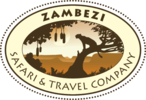
This Itinerary is disabled. Please contact the itinerary creator for more information.
Spirit of Rwanda
7 Nights
Kigali, Ghana, Gisenyi and Volcanoes National Park

This Itinerary is disabled. Please contact the itinerary creator for more information.
7 Nights
Kigali, Ghana, Gisenyi and Volcanoes National Park